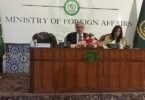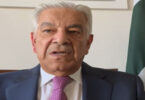F.P Report
KARACHI: Wildlife officials in Sindh’s capital of Karachi arrested a man Shakir Ali for illegally hiding 151 rare specifies of turtle for likely sale here on Thursday.
“We have recovered 151 Turtles, including 9 Marine turtles, 129 fresh water turtles and 13 Afghan Turtles, from Liaquatabad area of the city,” Inspector Naeem Muhammad Khan told The Frontier Post.
“We conducted a raid at Shop AE4 Marines Al Azam Square Liaquat No-10 and recovered 151 rare species of the turtles,” Khan further informed. Turtles are vanishing due to stray dogs and eagles on the seaside of Karachi where these animals feed on turtles’ eggs. Moreover, experts say that the plastic bags on seaside also have stopped olive ridley turtles from laying eggs on Beach. “The lives of green turtles are also in danger,” according to reports.
The International Union for Conservation of Nature (IUCN) recently organised an activity to monitor the turtles breeding habits. In the dark of the night, the non-governmental organisation’s employees observed that green turtles were actively breeding and laying eggs on the beach.
According to reports, Balochistan’s seashore, Mubarak Village and several other areas are breeding spots for these turtles but Karachi’s beach is more significant as it has an environment conducive for olive ridley turtles to breed and lay eggs. Plastic bags and other trash littered across Sandspit Beach are a hindrance to the turtles’ breeding. The turtles usually dig holes, called chambers, to lay their eggs in. They simultaneously lay 80 to 120 eggs inside it. The plastic bags pose problems for turtles aiming to dig the bigger chamber. If the turtles fail to dig the chamber they go back into the water.
According to the IUCN, in one year more than 6,000 baby turtles have been rescued but even more have fallen prey to the hungry canines. The hatchlings also die due to the torn fishing nets and heaps of garbage strewn across the beach. The small turtles crawl across the beach to reach the water shortly after hatching and often get tangled in the fishing nets, becoming easy prey for the stray dogs that populate the beach.
Environmental experts consider all these issues alarming. There is a dire need to spread awareness among people about how small measures can make a big difference in mitigating the threats faced by marine life. Two of the world’s seven marine turtle species – the Olive Ridley and the leatherback – are ranked as ‘vulnerable’, according to the International Union for Conservation of Nature’s (IUCN) Red List of threatened species, while loggerhead and green turtles are classified as ‘endangered’ and the hawksbill and kemp’s ridley ‘critically endangered’. Data for flatback turtles remains insufficient.
Pollution of the ocean by plastic was a key item on the Colombo meeting agenda. According to WWF, 8.8 million tonnes of plastic enters the ocean every year, the equivalent of a garbage truck dumping a full load every minute. Hundreds and thousands of turtles die each year from becoming entangled in or ingesting plastic and other waste.






